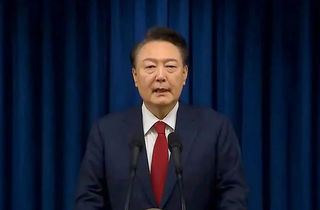President Yoon survived an impeachment vote in Parliament over the weekend, but his position remains precarious as investigations into his actions begin. Both the Korean Police and the Ministry of Justice are probing whether the martial law declaration constituted an act of treason or insurrection.
The martial law order, which was enacted without prior notification to the National Assembly as required by law, was rescinded just six hours later after lawmakers voted to overturn it. Critics allege that during this brief period, President Yoon overstepped his authority by ordering armed soldiers to enter the National Assembly and remove members of Parliament, an act seen as a direct assault on democratic governance.
Opposition leaders have accused President Yoon and his former defense minister, Kim Yong-hyun, of attempting to stage an insurrection aimed at shutting down the legislative body. The president is also under a travel ban, signaling the seriousness of the ongoing investigations.
In a significant political development, Prime Minister Han Duck-soo has stepped in, assuming de facto presidential responsibilities. The prime minister, supported by the ruling People Power Party, announced plans for President Yoon’s resignation, effectively sidelining him from matters of state, including foreign policy.
“President Yoon will not be involved in handling state affairs, including foreign policy, even before his resignation,” said People Power Party Chairman Han Dong-hoon. “We plan to minimize the turmoil stemming from Tuesday's martial law decree through President Yoon's orderly resignation.”
The opposition has labeled these actions unconstitutional, warning of a potential power grab by the ruling party. However, Prime Minister Han sought to ease concerns, emphasizing a collaborative approach with other political factions to stabilize national governance.
“We will take a humble stance and work with the People Power Party and other parliamentary groups on operational matters,” Prime Minister Han said in a statement.
As South Korea grapples with this unprecedented political crisis, the nation watches closely to see how the investigations and political maneuvers will unfold in the coming weeks. (ILKHA)



 Güncel
Güncel
 Dünya
Dünya
 Güncel
Güncel
 Güncel
Güncel
 Dünya
Dünya
 Dünya
Dünya
 Güncel
Güncel
 Dünya
Dünya
 Güncel
Güncel
 Güncel
Güncel





